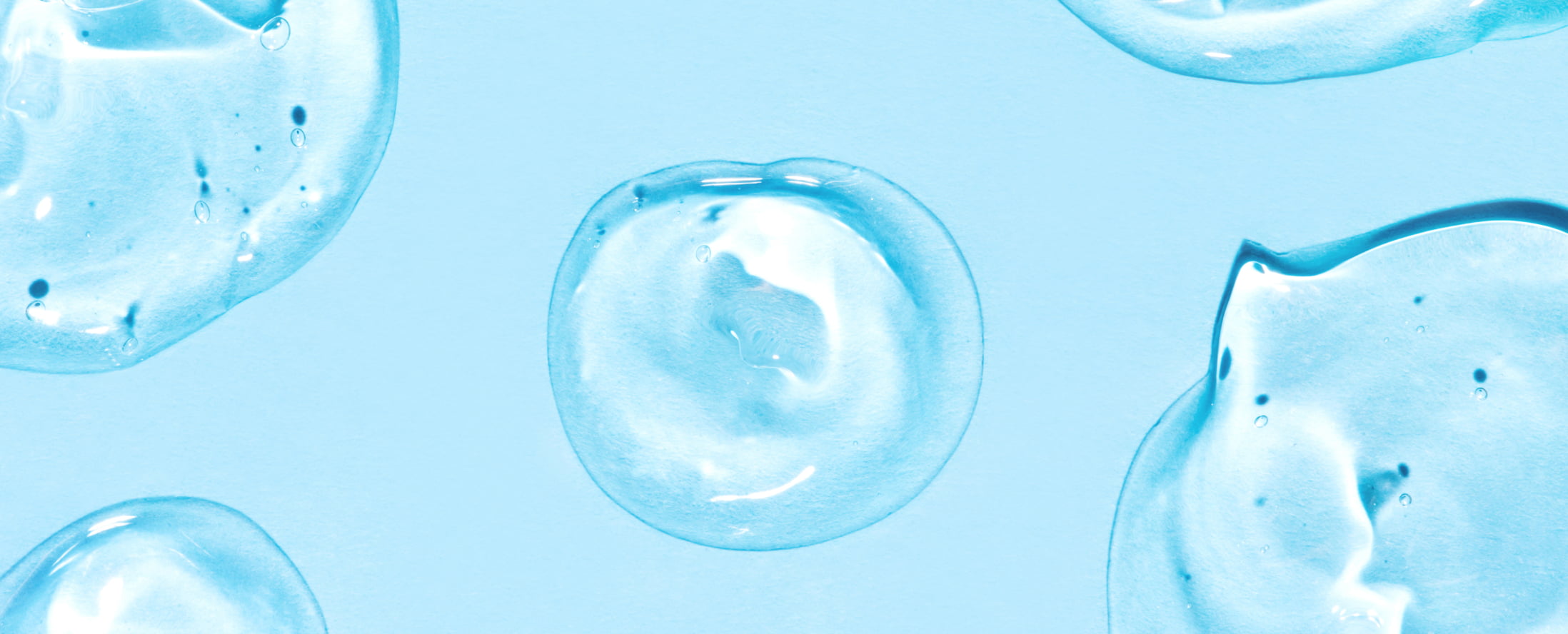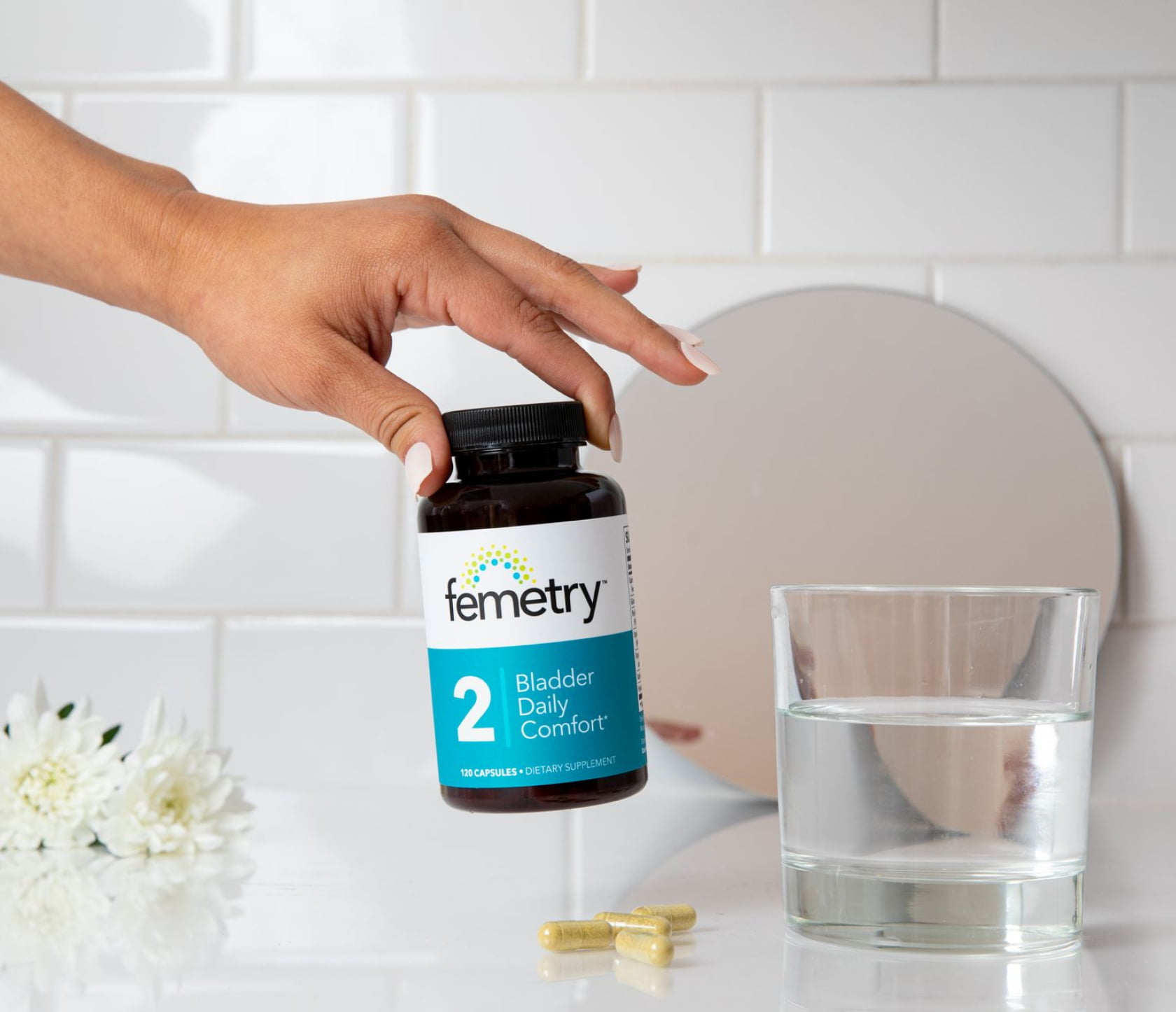Free shipping on all orders over $50 | Subscribe & save 15%
Free shipping on all orders over $50 | Subscribe & save 15%

Interstitial Cystitis (IC) is a persistent condition that affects millions of women and men worldwide. Symptoms often include discomfort and pain in the bladder and pelvis area, urinary urgency, and urinary frequency. While there is no cure for IC, numerous treatment options aim to alleviate symptoms and enhance the well-being of patients.
One promising avenue gaining attention is the use of hyaluronic acid. In this article, we will learn about this natural substance and how it could help people with IC.
Listen to Femetry’s own Dr. Karyn Eilber discuss the many benefits of hyaluronic acid.
IC, sometimes called Painful Bladder Syndrome, is a chronic inflammatory condition. It’s characterized by pain and pressure in the bladder, frequent urination, and the sudden, urgent need to urinate.
Since the exact cause of IC remains elusive, treatment and diagnosis is challenging. Conventional approaches often include lifestyle changes, medications, and physical therapy. Learn more about pelvic floor physical therapy.
IC patients and healthcare providers are always seeking new ways to manage IC symptoms.
Hyaluronic acid is a natural substance found in the human body. You might be familiar with its uses for the skin, but this substance is also present in the eyes and connective tissues. Hyaluronic acid plays a pivotal role in maintaining hydration and lubrication in various bodily tissues. In short, it keeps things running smoothly, promoting overall health and excellent function.
In recent years, researchers have explored the potential of hyaluronic acid in treating conditions beyond skin concerns. Let’s take a look at what that means for IC.

Hyaluronic acid is naturally found in our skin and can retain 1,000 times its own weight in water!

Hyaluronic acid can be helpful for IC by:
Studies show that hyaluronic acid impacts the health of the bladder lining. For IC patients, a compromised bladder lining is a common concern. Hyaluronic acid (and its derivative hyaluronate sodium) has the ability to support a healthy bladder lining by replenishing the glycosaminoglycan, or GAG, layer.
This makes it harder for harmful substances in the urine to permeate through the bladder wall and agitate the bladder. This can help reduce IC symptoms, like pain and discomfort, and improve bladder health.
For more information about fortifying the bladder lining, see: glucosamine.
Hyaluronic acid binds well with water and helps with lubrication. Adequate lubrication within the bladder helps reduce friction during urination. IC often causes pain during urination due to a weak bladder lining or high acidity in the urine. Ideally, more lubrication should lessen the irritation and discomfort when using the restroom.
Inflammation is a hallmark of IC. Doctors believe it causes pain and discomfort in the bladder and surrounding areas.
Hyaluronic acid could help mitigate your body’s inflammatory response. This eases the pain that so many IC patients struggle with. By reigning in the inflammation, hyaluronic acid may help with symptoms and promote overall bladder health.
One of the most challenging aspects of IC is the chronic pain that accompanies the condition. Some individuals find relief through bladder instillations. This procedure sends a solution directly into your bladder in hopes that it will help with your symptoms.
In one study, researchers sent hyaluronic acid via bladder instillation. Patients reported significant changes in pain and discomfort.
Hyaluronic acid has a unique set of properties that may offer sustained relief for IC sufferers. While some treatments provide temporary reprieve for symptoms, the regenerative and protective nature of hyaluronic acid could potentially yield longer-lasting benefits.
As researchers continue to explore innovative solutions for managing IC, hyaluronic acid emerges as a promising avenue with many benefits. From supporting bladder lining health to soothing discomfort, hyaluronic acid for IC has many benefits.
If you’re thinking about using hyaluronic acid for treatment, talk to your healthcare providers for personalized and thorough care.
For more information about our potent ingredients, visit our Ingredient Glossary.

Clinical doses of powerful ingredients, like aloe vera, hyaluronic acid, quercetin, and ashwagandha. This multipoint formula supports the underlying causes of IC, supports a healthy inflammatory response and bladder lining, and helps to keep stress at bay.
Learn more